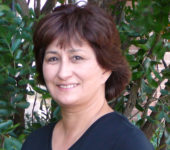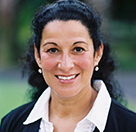• by Rosana G. Rodríguez, Ph.D., and Linda Cantu, Ph.D. • IDRA Newsletter • November – December 2010 •



As described in IDRA’s new book, Courage to Connect: A Quality Schools Action Framework, teaching quality is one of four indicators that are tied to student success. IDRA’s Transitions to Teaching projects offer a unique approach for preparing incoming teachers in areas of critical need in Texas.
Funded by the U.S. Department of Education, these projects provide an accelerated but rigorous, state-approved certification route of 12 to 15 months. Certification is offered through university- or district-approved programs that partner with IDRA.
Two programs are currently underway at IDRA: Math and Science Smart (MASS) and Caminos. They target recent graduates and mid-career professionals who are working in fields other than teaching. These new teachers participate in intense professional development while in a first-year paid teaching internship. They commit to working in high-need school districts for three years, including the internship year.
IDRA’s program is unique in creating a new cadre of professionals who are expert in their content areas and are prepared to engage students in meaningful and culturally appropriate ways. The projects provide specialized support and high quality in-service. A series of professional development sessions that we call platicas are conducted with each group of teachers. Recent topics have included strategies for working with second language learners, classroom management, and hands-on content area instruction. IDRA also prepares mentors to work with the new teachers through classroom demonstrations, co-teaching, identifying mentoring needs, engaging students, and effective parent engagement.
Both programs prepare teachers to instruct English learners. IDRA believes the following elements are key to effective preparation of teachers of English learners (Rodríguez & Villarreal, 2004).
- Teacher preparation must address our changing student body and build skills from an understanding of assets rather than using a deficit perspective.
- New teachers benefit from support throughout their preparation and induction period and beyond with professional development, including debriefing, coaching, one-on-one counseling sessions, and one-on-one coaching sessions.
- Teachers’ personal qualities, such as persistence and resilience, should be stressed (Haberman, 2001).
- Effective collaborative approaches to teacher selection involve school districts, universities and, in this case, IDRA.
- Preparation for meaningful parent engagement is not usually addressed by traditional teacher preparation programs but should be. IDRA brings powerful expertise in this area and has a seven-part Community Engagement Series for Educators that is designed to create a culture of meaningful parent engagement with an equity perspective (Rodríguez, et al., 2009).
- Mentoring is vital. IDRA-trained mentors work with the new teachers following the Lindsey philosophy (2007). Our mentors use IDRA’s Coaching and Mentoring of Novice Teachers Model as a guide throughout the program (Solís, 2004).
To better meet the needs of new teachers and influence retention of best teachers, IDRA ensures that project participants are equipped and supported as soon as their internships begin. We work collaboratively with schools to provide the mentoring and coaching necessary that is focused on psychological and pedagogical needs, infused with principles and strategies for working with culturally diverse children with special needs and their families.
All teachers have a campus-level “master teacher” mentor assigned to them as well as an IDRA mentor. The IDRA mentor evaluates the needs of each new teacher initially and develops an ongoing supportive relationship. Each year closes with an exit interview for assessment and continuous improvement of programmatic and individual needs.
Additional teacher support is offered through IDRA’s social networking web site for current and future teachers in our programs. Participants are able to reconnect with those who participated with them; share experiences, successes and challenges on their road to teaching; share job and career opportunities; discuss effective bilingual and English learner strategies for classroom use; and strengthen the network of educators who work in high need schools.
Key lessons are shedding light on future steps to be taken for improving teacher preparation.
- Schools of education must place a high value on teacher education for a diverse student population and support the work across areas of discipline.
- Universities should share successful approaches for recruiting and retaining bilingual teachers in high growth states.
- The body of research and knowledge needs to be expanded about effective teacher preparation with other key stakeholders in education.
- A comprehensive set of policies, practices and programs that enhance the preparation of educators who teach English language learners must be compiled.
- Holistic assessment and support programs must be developed for educators that rely primarily on the demonstration of knowledge and performance in the classroom.
- Schools of education are more effective when they provide consistent and long-term support for individuals when they enter teacher education programs to complete all requirements for certification and work in the classroom.
- Schools of education need to create innovative and meaningful partnerships between schools, communities and universities to support teacher recruitment, preparation and placement.
- Effective strategies should support teaching throughout and beyond the certification process by allowing prospective teachers to study theory and practice during their training while they apply prior experience.
- Schools of education should hire faculty who are experienced, well prepared and knowledgeable about effective strategies for diverse students.
- Schools of education must expose teacher candidates to K-12 classrooms with diverse student bodies early in their preparation.
- Teacher education programs should build competencies that emphasize all aspects of developing Latino student self-esteem.
Over the past several years, more than 500 teachers have been selected to participate in IDRA Transitions to Teaching projects. Most are faithfully and effectively serving English learners and other students in high need areas in Texas. While the focus is on effective strategies for English learners, the excellent pedagogy and linguistic and cultural methodologies are relevant for all students.
Resources
Haberman, M. “The Creation of an Urban Normal School: What Constitutes Quality in Alternative Certification,” Education Studies (Fall 2001) 32(3), pp. 3-34.
Rodriguez, R.G., & A. Villarreal. An Action Agenda for Effective Accelerated Bilingual/ESL Teacher Preparation (San Antonio,
Texas: Intercultural Development Research Association, 2004).
Rodríguez, R., & J. García, A. Villarreal. Community Engagement Series for Educators (San Antonio,Texas: Intercultural Development Research Association, 2010).
Lindsey, D.B., & R.S. Martinez, R.B. Lindsey (eds). Culturally Proficient Coaching: Supporting Educators to Create Equitable Schools (Thousand Oaks, Calif.: Corwin Press, 2007).
Solís, A. “The Role of Mentoring in Teacher Quality and Retention,” IDRA Newsletter (San Antonio,
Texas: Intercultural Development Research Association, June-July 2004).
Rosana G. Rodríguez, Ph.D., is director of development at IDRA. Linda Cantu, Ph.D, is an IDRA senior education associate. Comments and questions may be directed to them via e-mail at feedback@idra.org.
[©2010, IDRA. This article originally appeared in the November-December 2010 IDRA Newsletter by the Intercultural Development Research Association. Permission to reproduce this article is granted provided the article is reprinted in its entirety and proper credit is given to IDRA and the author.]


